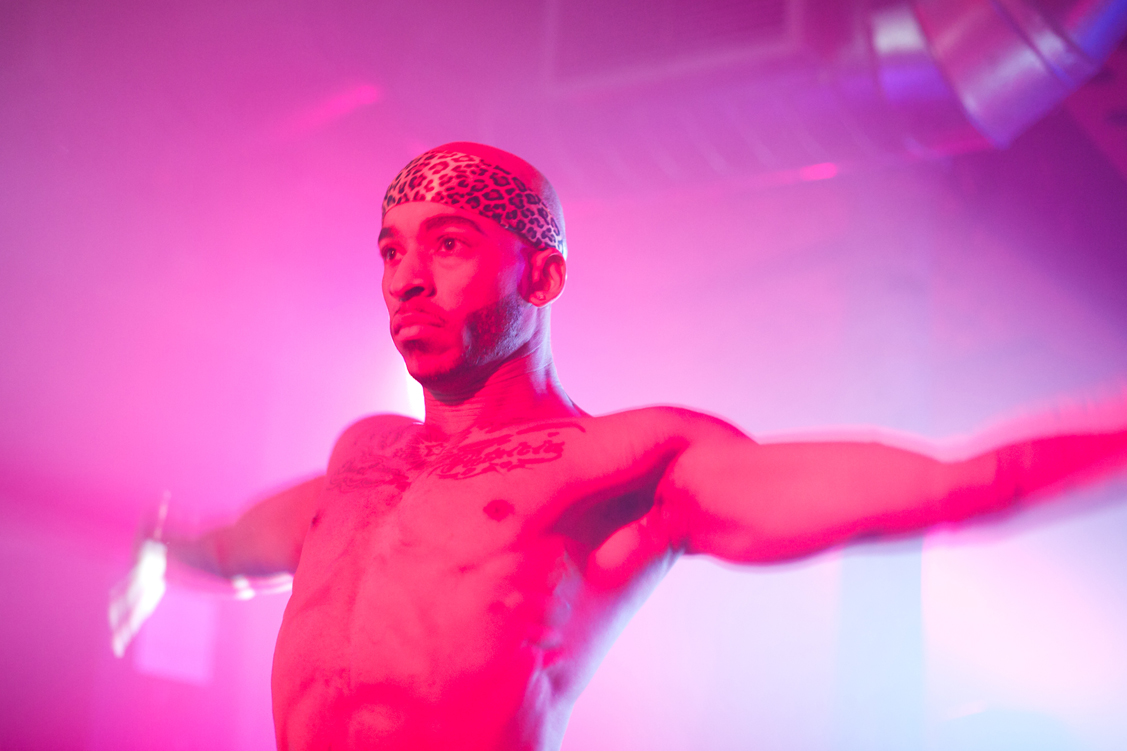You’ve Never Seen Pain Expressed Like This
You’ve Never Seen Pain Expressed Like This
A freestyle performed conversation for bodies and voices – with the Queen of Krump, the master of Vogue Femme Dramatics and the rising star of Vogue Women’s Performance.
ReadWhat we wrote about it at the time: A 2-hour freestyle performed conversation with dancers and the audience, in which both the bodies and voices will ask and respond to questions like: What’s political about American black, working class dance styles like Krump or Vogue? Do they practice moving in two worlds at the same time? What does the body know about injury and harm? Do they acknowledge past damage done while also remembering a time before it or predicting its future transcendence? Coming at it via Danielle Goldman, are these dance forms a way of navigating tight spaces, a way of practicing being ready for something desired: do they resist the hardened stances of imposed norms?
Miss Prissy is the Queen of Krump, a black working class dance form emanating from LA. When we watch her dance we’re reminded of the great black scholar WEB DuBois’ idea of frenzy that Fred Moten turned us on to. Frenzy, as a collective expression of (religious) black experience, isn’t only a kind of mania; it varies from “silent rapt countenance or a low murmur and moan to the mad abandon of physical fervour”. We think of this idea of frenzy in relation to pain and community and a kind of understandable fury, and we think of Krump as a form of social organising that translates damage and disarray into dance.
The Legendary Pony Zion Garçon is the master of Vogue Femme Dramatics within the Black & Latino LGBTQ Ballroom community. Fred Moten talks about DuBois’s idea of the preacher in the Black Church – not as the leader of that community or an already established individual subject, but as the emanation of the congregation that bears the trace of the sociality that produced them. Getting at dance this way, we think of Pony’s movement as eloquently expressing what his community already knows, momentarily re-presented back to them by one body before it falls back into the community, so that another emanation might rise out of it.
Kia Labeija is a member of the Iconic House of Labeija in the Ballroom Community in New York. She won the Women’s Performance category at this summers Latex Ball, and collaborated with us all on the Masters Ballstar Weekend events in April. Open about her HIV status, she is becoming an increasingly important voice and representative in the youth AIDS constituency. Her performances sit at the intersections of nightlife, community and a form of fantasy – a kind of danced, bodily commitment that reminds us to something Fred Moten has said – “I believe in the world and want to be in it. I want to be in it all the way to the end of it because I believe in another world in the world and I want to be in that. And I plan to stay a believer, like Curtis Mayfield.”
Danielle Goldman is a dancer and the author of our favourite book on dance – I Want To Be Ready – Improvised Dance as a Practice of Freedom – in which freedom is understood not as some ultimate endpoint or destination: it’s a practice, an ongoing manoeuvring between constraints and away from hardened stances; a practice of giving shape to oneself, of maintaining a flexibility and readiness for what is to come, a way of moving in an unsteady landscape.
Documentation
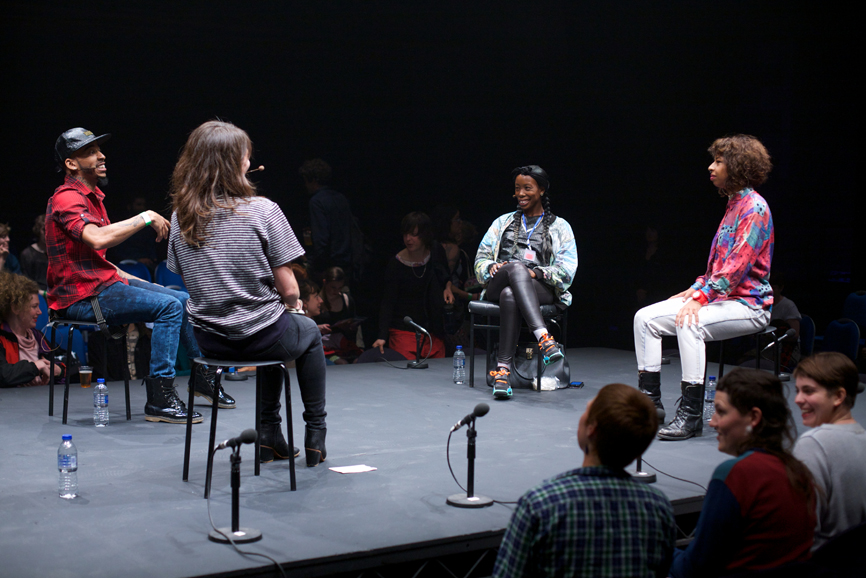
▴ Credit: Alex Woodward
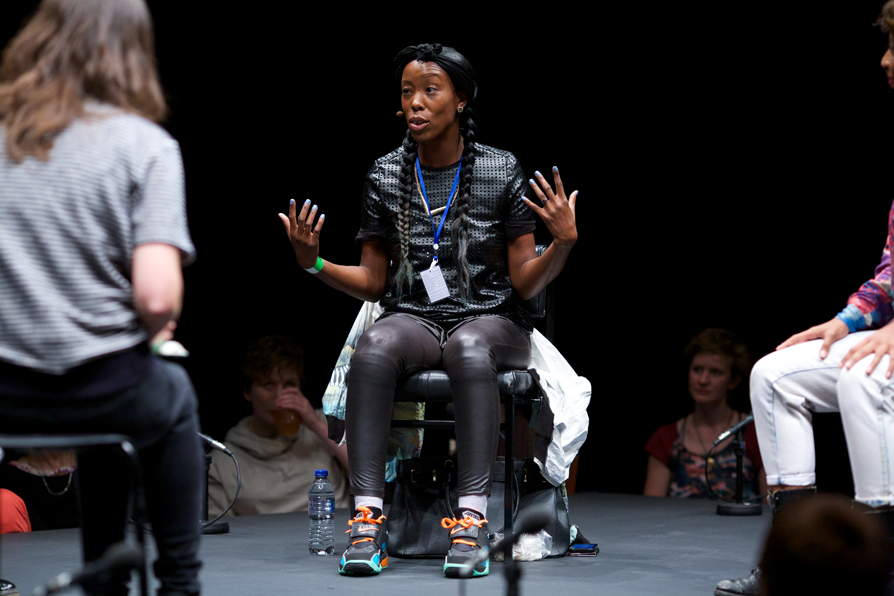
▴ Credit: Alex Woodward
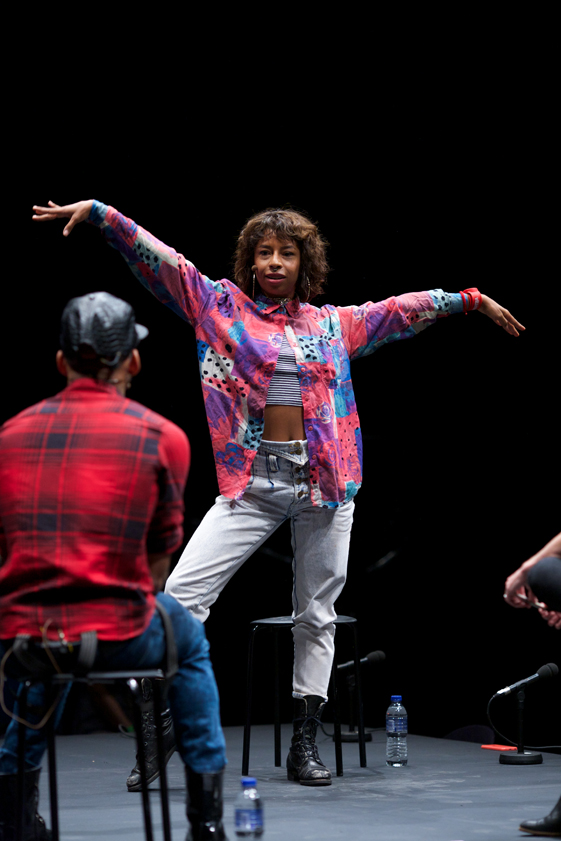
▴ Credit: Alex Woodward
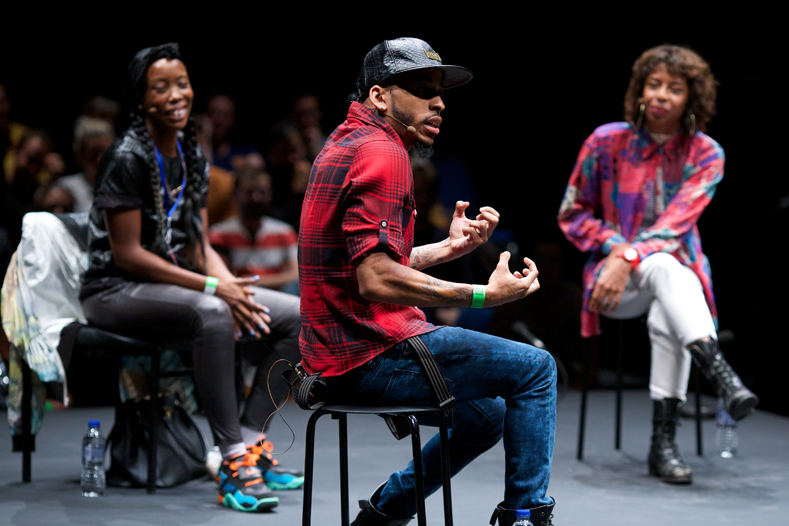
▴ Credit: Alex Woodward
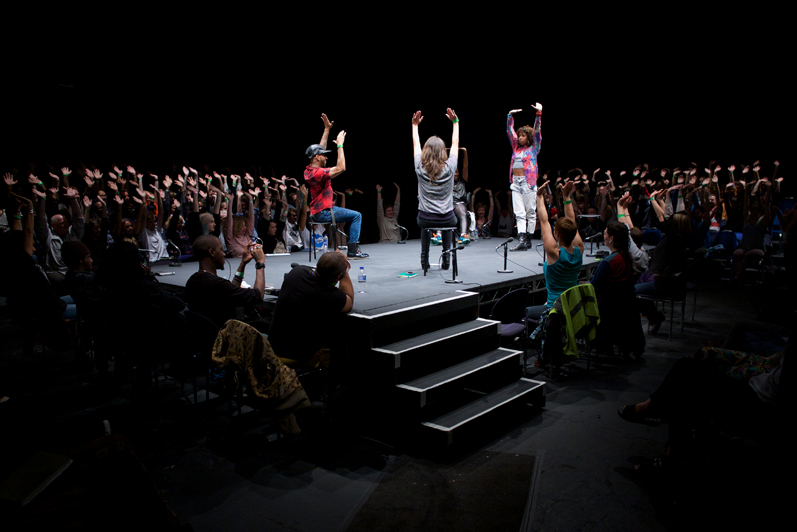
▴ Credit: Alex Woodward
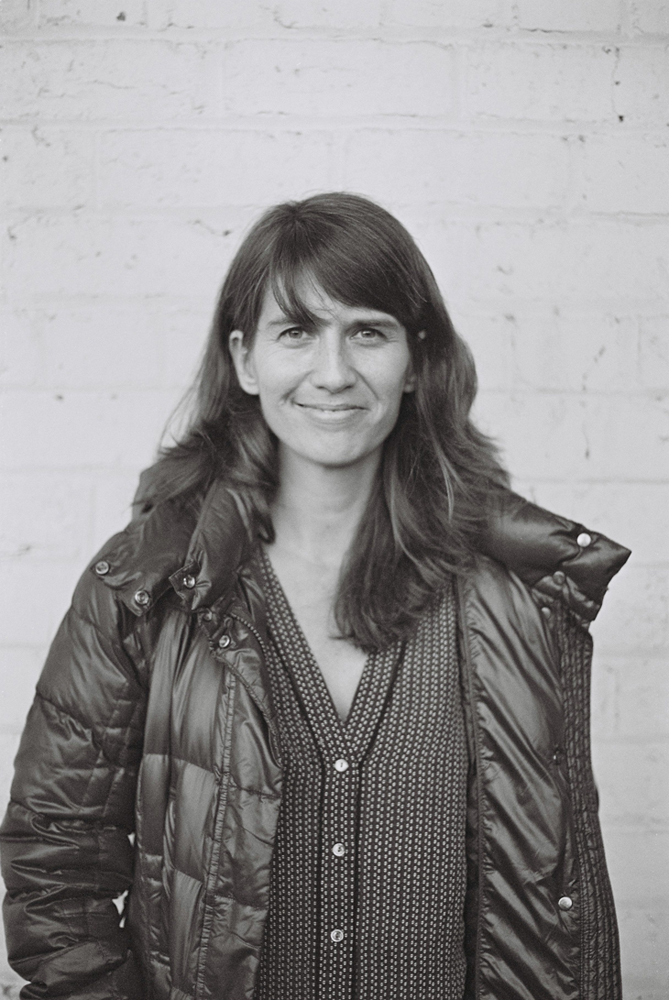
▴ Credit: Bryony McIntyre
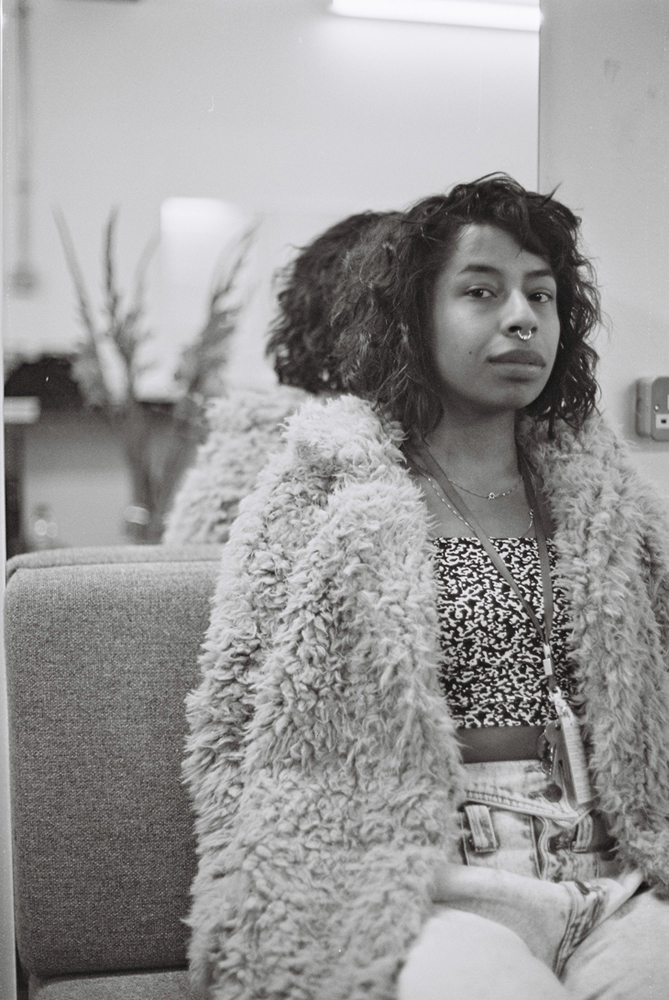
▴ Credit: Bryony McIntyre
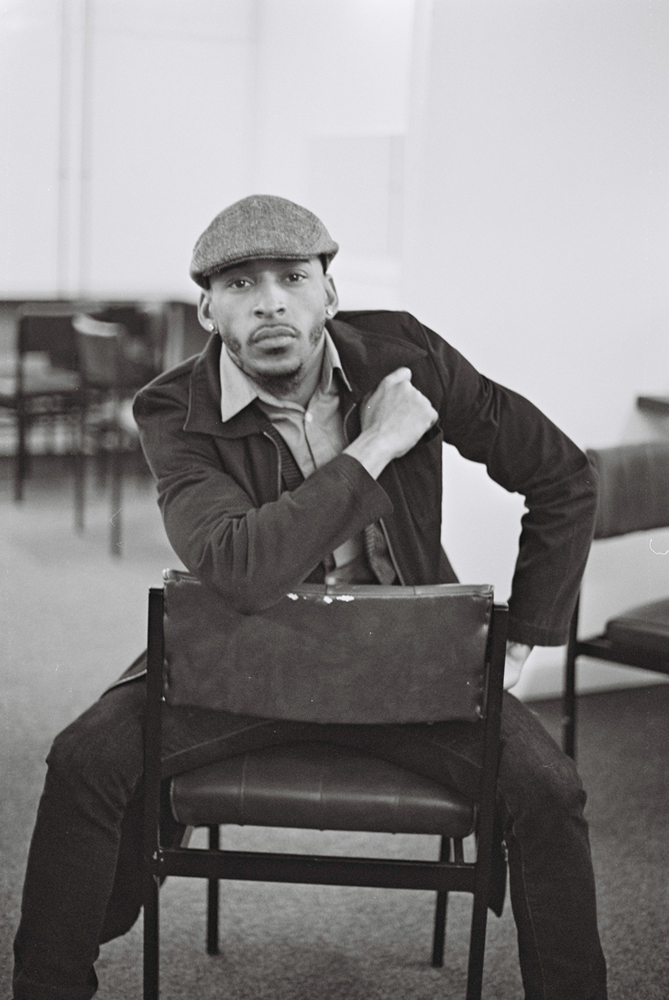
▴ Credit: Bryony McIntyre
Artists
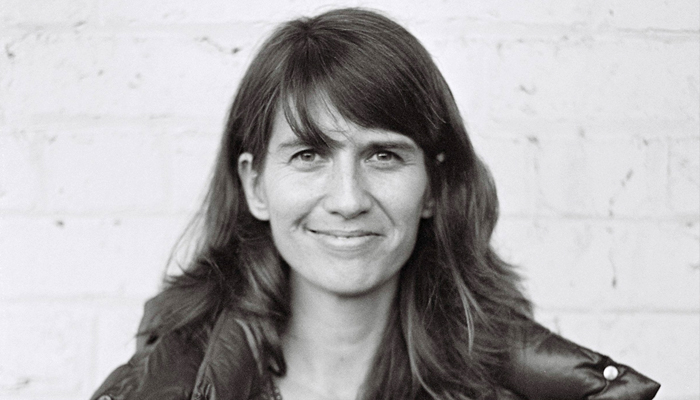
Danielle Goldman
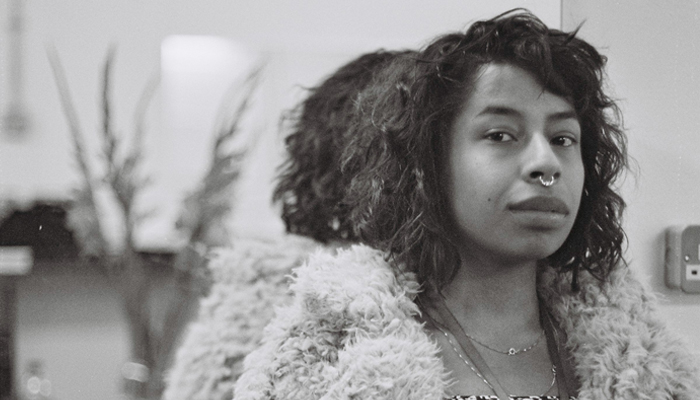
Kia Labeija
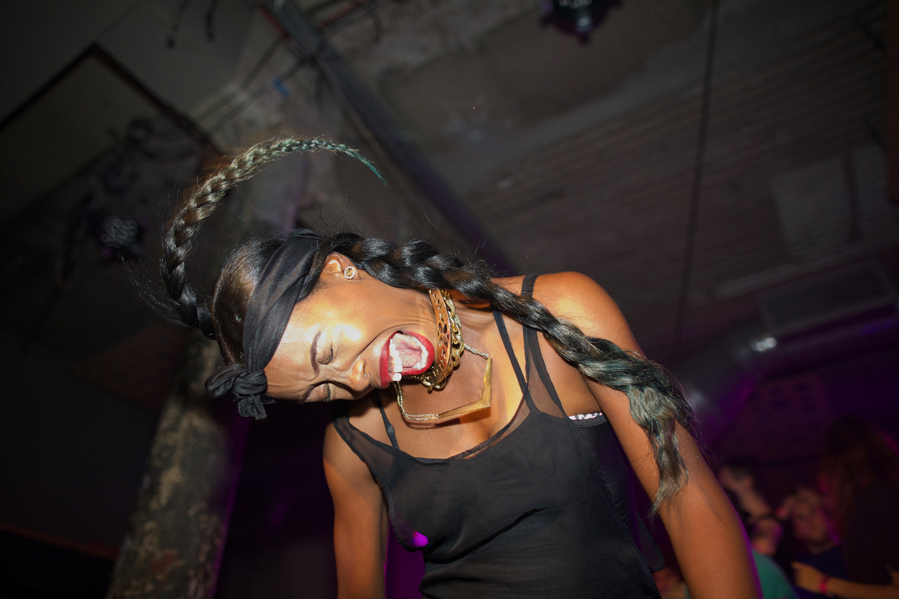
Miss Prissy
